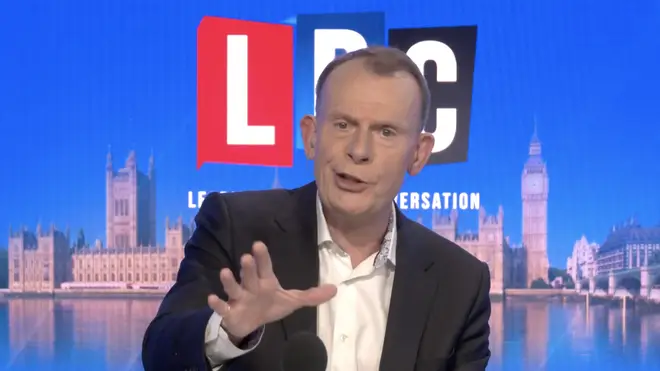
Paul Brand 10am - 12pm
17 July 2023, 18:17

It is "remarkably reductive" to define the value of a degree by financial return, Andrew Marr has said.
Opening LBC's Tonight with Andrew Marr, the presenter addressed Rishi Sunak's latest plans to crack down on 'Mickey Mouse' degrees.
"The Prime Minister Rishi Sunak wants to end what he calls rip-off courses at universities, limiting the number of students they can recruit to subjects which are not delivering what he calls 'good outcomes'," Andrew said.
"He said in a newspaper article today that young people were being saddled with 'tens of thousands of pounds of debt from bad degrees that just leave them poorer, and dissuaded from pursuing more vocational options because they are being led to believe that University is the only route to success.
"'It's not fair on them and it's not fair on you as taxpayers forced to pick up a big chunk of the bill despite getting nothing back for our economy...'
"He doesn't say what these useless Mickey Mouse degrees are, and I'm 100% with him on the need for better apprenticeships.
"But he does quote the Institute for Fiscal Studies saying that around 70,000 graduates each year would be better off financially if they hadn't gone to university. Really interesting.
Watch Tonight with Andrew Marr exclusively on Global Player every Monday to Thursday from 6pm to 7pm

Andrew Marr says it feels "remarkably reductive" to judge a degree by its financial outcome
Andrew continued: "So I went to their report and read it for myself. And indeed they do look at the financial returns from different degrees, assessing net lifetime returns in pounds.
"Considering women, found that medicine, economics, law and business were the most remunerative degrees: with the creative arts, languages, philosophy and agriculture leaving them worst-off financially.
"But what does remunerative and indeed worse-off, really mean? Would you feel that you were better off if you couldn't speak other people's languages, or draw or make music, or understand how to think and analyse bad arguments - that’s philosophy - or grow things?
You can also listen to the podcast Tonight with Andrew Marr only on Global Player.
"I guess agriculture does badly as a degree because farmers are hard up these days for reasons that don't have a lot to do with academia. Overall, this seems a remarkably reductive way of thinking.
"Whether a degree is good or bad value depends not just on your salary but on how it changes your life.
"I studied English, for instance, and you might say how ridiculous that long ago the state subsidised Andrew Marr to read poets and half-forgotten novelists.
"All I can say is that for 40 years-plus it helped me to write, and speak, and earn my living but - much more important, that not a single day in my life has gone past without me picking up some great, usually long dead writer and having my imagination and mood lifted into the air by their wit or wisdom.
"It’s been a lifelong blessing, that degree. How can any politician, any bureaucrat, second guess the instincts and choices of people about what they believe they need, what they think be good for them.
"God forbid, I say, that kids today, particularly from poorer backgrounds should have those golden gates leading to a better life slammed in their faces. But maybe I'm wrong."